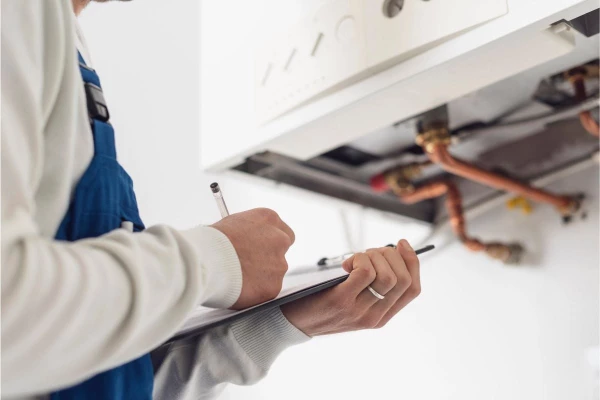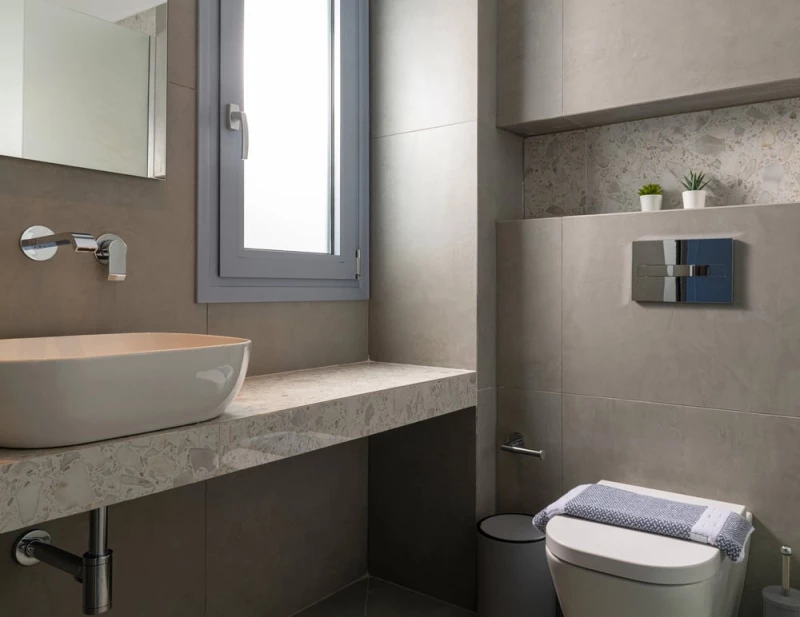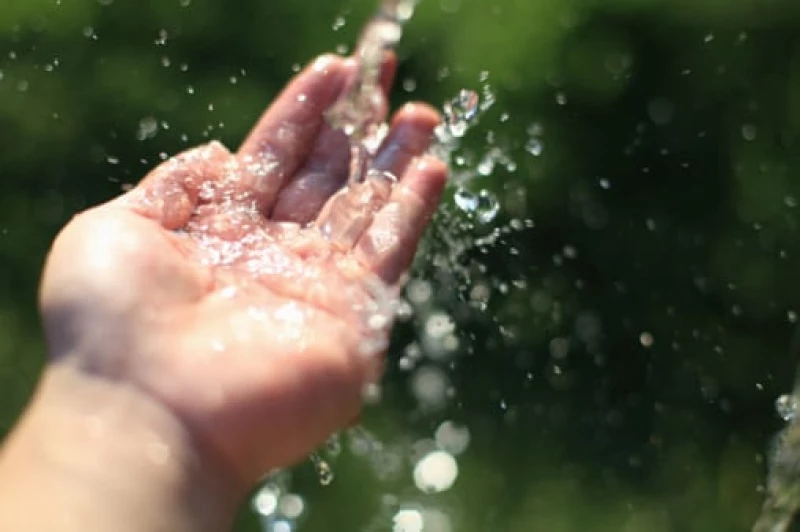If you’ve ever wondered how long do hot water systems last, you’re not alone. A hot water system is one of the most important parts of your home’s plumbing, and knowing its typical lifespan helps you plan ahead for maintenance, replacement, and budgeting. The answer depends on the type of system you have, how well it’s maintained, and the conditions it operates in.
In this guide, we’ll break down how hot water systems work, the average life expectancy of different models, and what you can do to extend their performance. We’ll also touch on common costs so you know what to expect when the time comes for a new hot water system.
How Does a Hot Water System Work?
Before looking at lifespan, it helps to understand how does a hot water system work. While there are several types of hot water systems available in Australia, the basic principle is the same: cold water enters the system, heat is applied through electricity, gas, solar, or a heat pump, and the heated water is delivered through your taps or shower.
There are two main styles of systems:
- Storage hot water systems: Heat water in a tank and store it for later use.
- Continuous flow water heaters: Heat water as it passes through the unit, meaning there’s no storage tank.
The most common energy sources are:
- Electric hot water systems: Either storage or continuous flow, powered by an electric element.
- Gas hot water systems: Use natural gas or LPG to heat water. Available as storage gas systems or continuous flow units.
- Solar hot water systems: Use roof-mounted solar panels to capture energy, often with a storage tank and electric or gas booster.
- Heat pump hot water systems: Extract heat from ambient air using a heat exchanger, making them an energy-efficient option in many climates.
Each type has different strengths, installation costs, and life expectancies.
Average Hot Water System Lifespans
So, how long do hot water systems last in real terms? Here’s a breakdown by type:
- Electric storage systems: Around 8–12 years. Tank corrosion, sediment build-up, and wear on the electric element are common factors that limit lifespan.
- Gas storage systems: Typically 8–12 years. They’re subject to tank corrosion as well, though the absence of an electric element sometimes means fewer part failures.
- Continuous flow (gas or electric): 15–20 years. With no hot water tank to corrode, these systems usually last longer, though regular maintenance is important to avoid reduced efficiency.
- Solar hot water systems: 10–15 years for the tank and booster, but the solar panels themselves often last 20+ years. Performance depends heavily on water quality, roof space, and proper maintenance.
- Heat pump systems: Usually 10–15 years. These rely on moving parts like compressors and fans, which wear out over time.
These ranges are averages. With regular maintenance, some systems can last significantly longer, while poor water quality or neglected servicing may shorten their life.
Key Factors That Affect Lifespan
Several factors play into the hot water system lifespan:
- Water quality: Hard water or high mineral content can cause scale build-up, corrosion, and reduced efficiency. In some cases, using filtered water can help protect your system.
- Tank material: Copper tanks can resist corrosion better than mild steel, though all tanks eventually suffer wear.
- Water pressure: Excessive pressure can strain the storage tank or pipework, especially in gravity fed systems.
- Usage patterns: Larger households using high volumes of hot water will wear out elements, burners, and tanks faster.
- Ambient air and climate: Warm climates are ideal for heat pumps and solar systems, but may shorten the life of some electric systems due to higher energy demand.
- Proper maintenance: Regular maintenance like flushing tanks, checking anodes, and inspecting valves can significantly reduce breakdowns and extend service life.
Signs Your System May Be Near the End
Even if you’re not counting the years, your system will usually give warning signs that it’s time for a replacement:
- Rust or corrosion around the tank
- Water leaks near the base of the system
- Inconsistent water temperature or less hot water than usual
- Strange noises like popping or rumbling
- Higher energy bills due to reduced efficiency
If your system is over ten years old and showing these symptoms, it’s worth booking a plumber to assess whether repair or replacement is more cost-effective.
How Much Is a Hot Water System?
This depends on the type of system, its size, and the installation cost. Here’s a general guide for Australian households, from the most affordable to the highest investment:
- Electric storage: Usually the cheapest upfront option. These systems are the most common type but can be more expensive to run over time.
- Gas storage: Slightly more expensive to install, but a good choice if you already have access to natural gas.
- Continuous flow gas: A higher upfront investment, but efficient and well-suited to households that use hot water throughout the day.
- Heat pump systems: More expensive to purchase and install, but they can reduce ongoing energy bills in the right conditions.
- Solar hot water with booster: Generally the most costly upfront, but often eligible for government rebates and can deliver long-term savings when paired with solar panels.
Don’t forget to factor in running costs. While electric storage units are the cheapest to install, they can use the most electricity. Options like solar, heat pumps, or continuous flow may require more upfront, but they’re often more energy-efficient and cost-effective in the long run.
Tips to Extend the Life of Your Hot Water System
While every system has a natural lifespan, there are simple ways to get the most from your investment:
- Schedule regular maintenance: Annual inspections help catch small issues before they become costly.
- Check the sacrificial anode: In storage systems, replacing the anode rod every few years can prevent tank corrosion.
- Flush the tank: Removes sediment and reduces heat loss.
- Insulate pipes and tanks: Cuts down on heat loss and saves energy.
- Use off-peak tariffs: For electric storage, this reduces strain on the element and lowers energy costs.
- Monitor your water quality: In hard water areas, consider installing a filtration system to protect your hot water tank and pipes.
Choosing a New System
When your old system reaches the end of its life, it’s worth considering your options carefully. Think about:
- Household size and hot water use: Larger households may need a bigger storage tank or higher flow rate.
- Energy efficiency: A more efficient system may cost more upfront but save energy and money long term.
- Available energy sources: Natural gas, roof space for solar panels, or off peak electricity tariffs can all influence your choice.
- Budget: Balance installation costs with ongoing energy bills. Sometimes paying more upfront is the more cost-effective choice over the long haul.
A licensed plumber can help you compare systems and find the right fit for your household.
Contact Swan’s Plumbing for Your Hot Water Needs
Need advice on your current hot water system or thinking about a replacement? Swan’s Professional Plumbing is here to help. Our licensed Perth plumbers service, repair, and install all types of hot water systems, making sure you’ve always got reliable hot water when you need it.
Get in contact with our friendly team today to book a service or request a quote.




